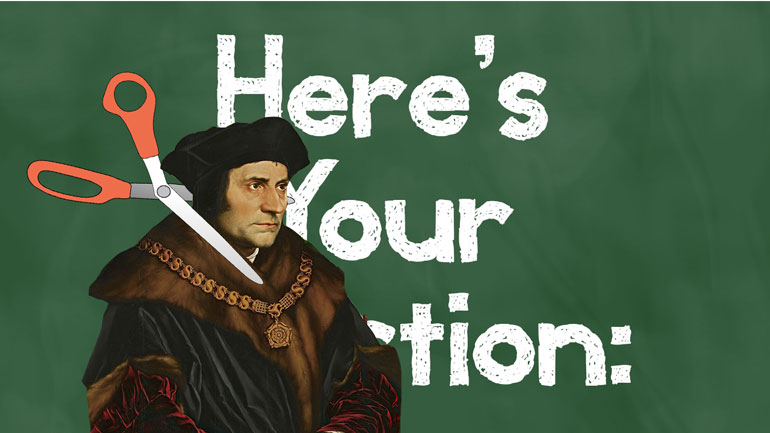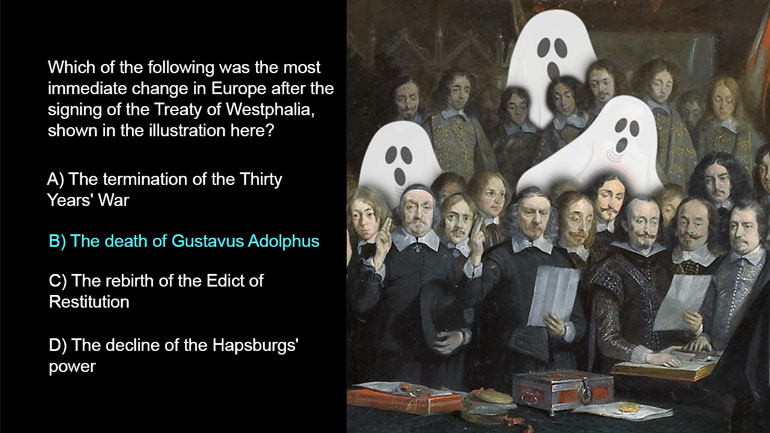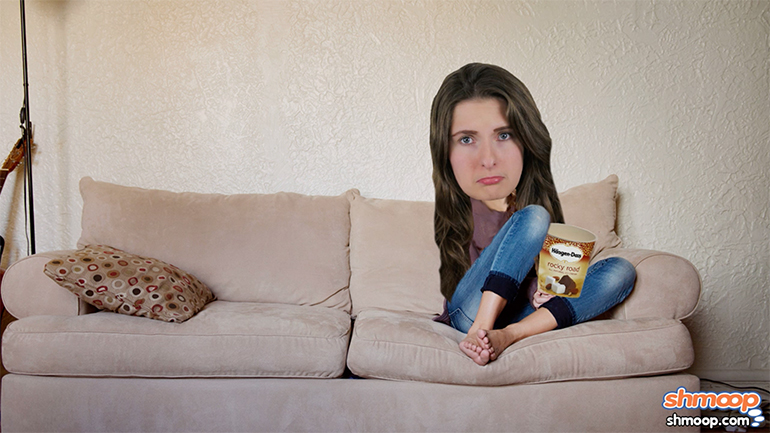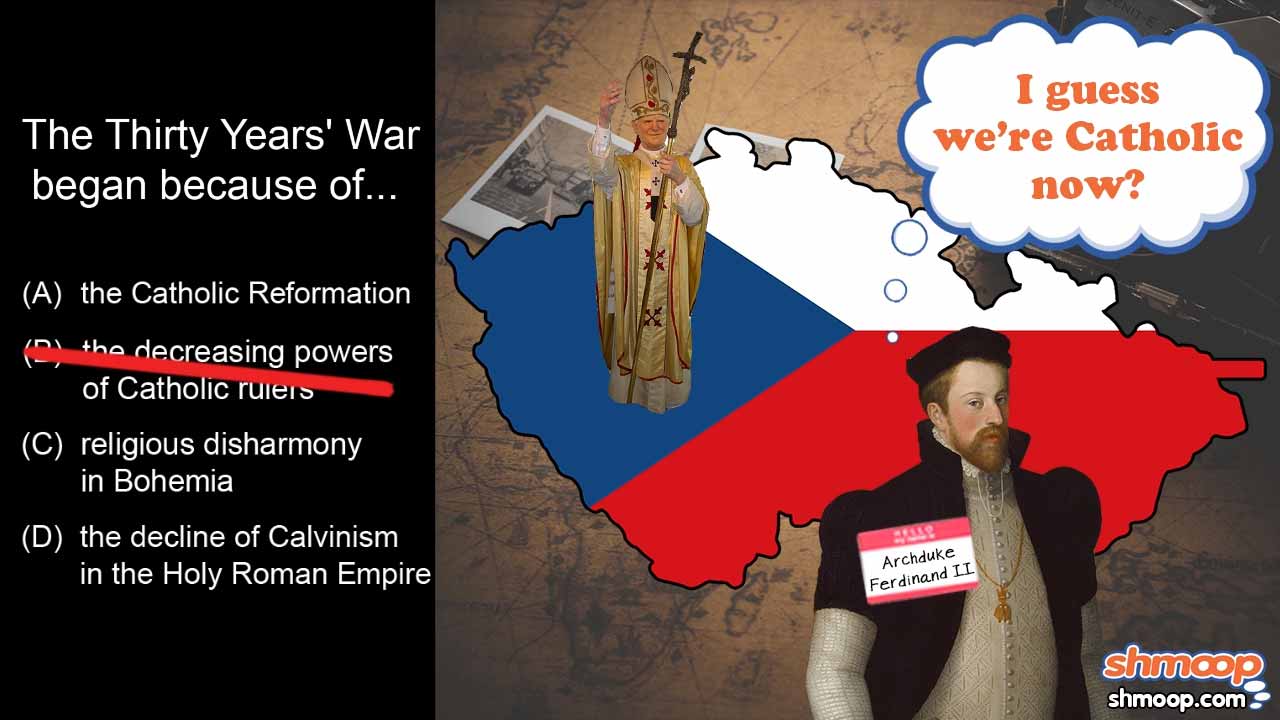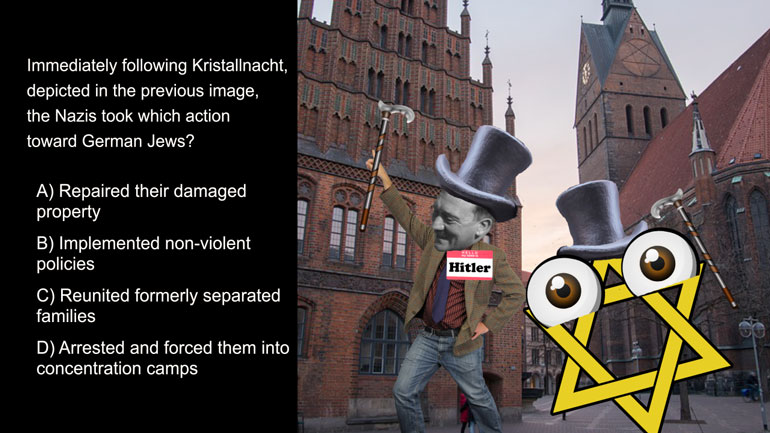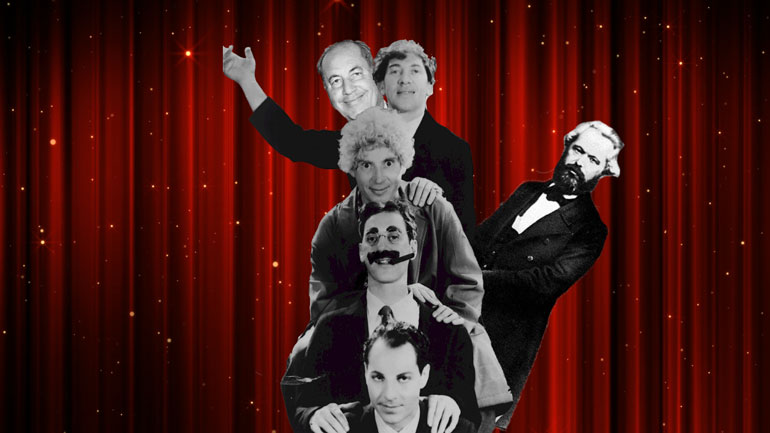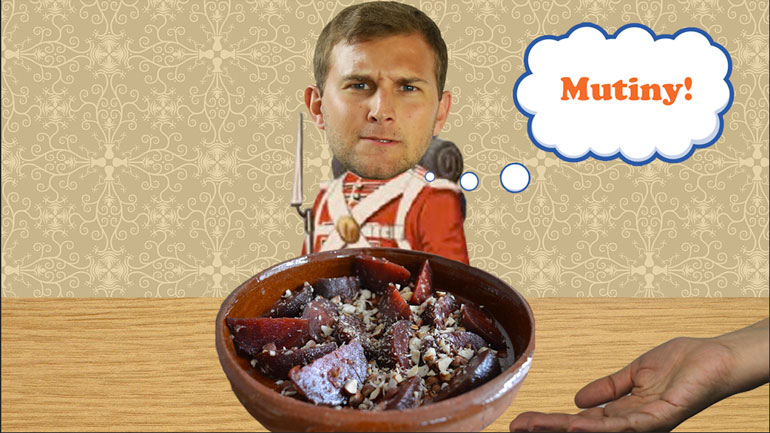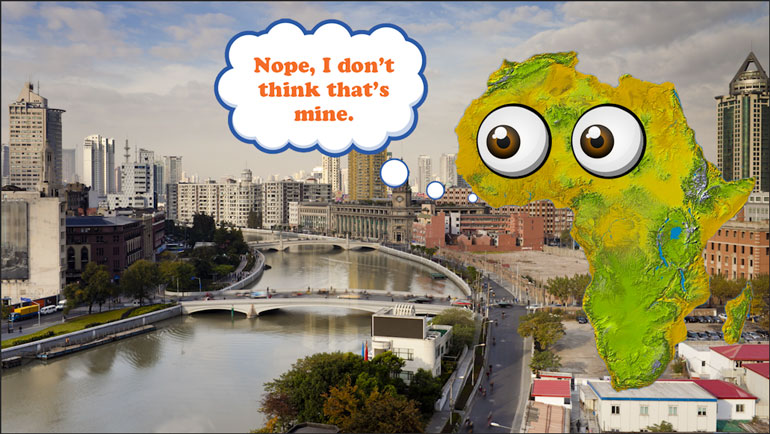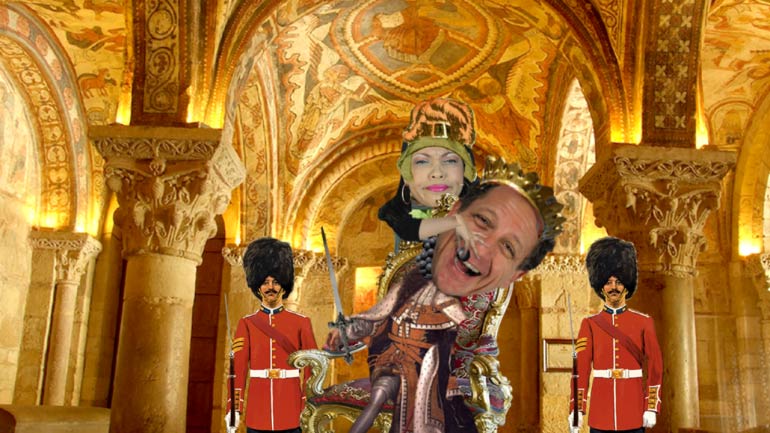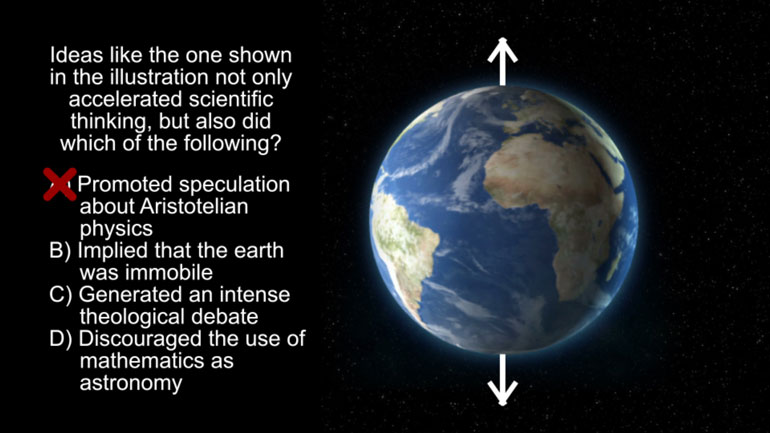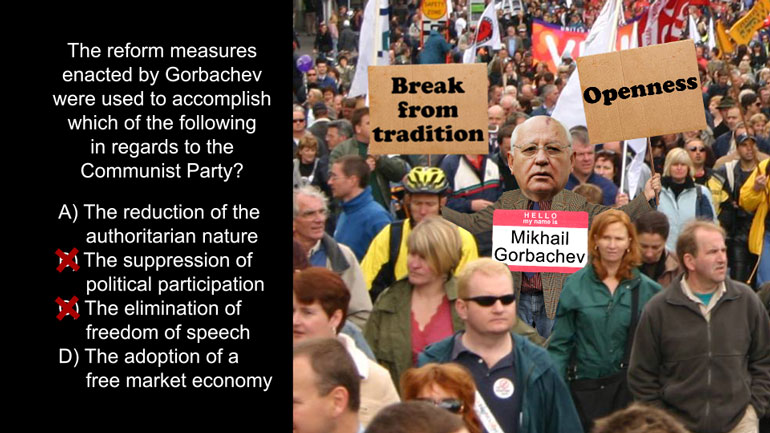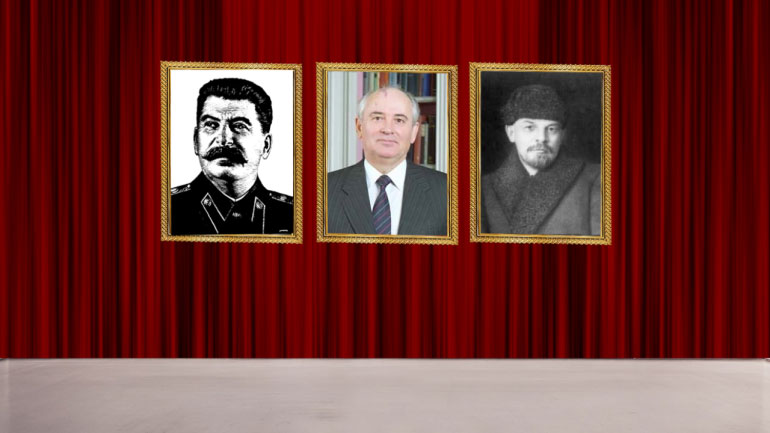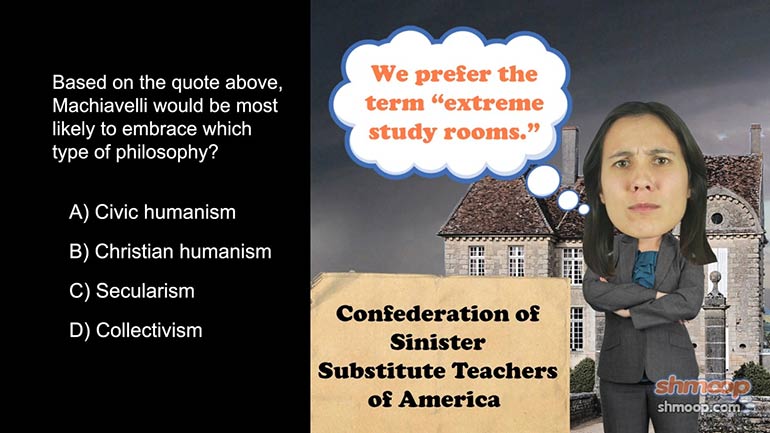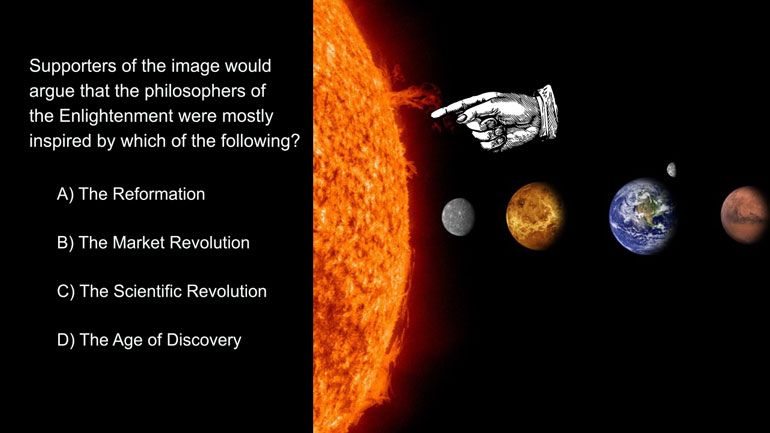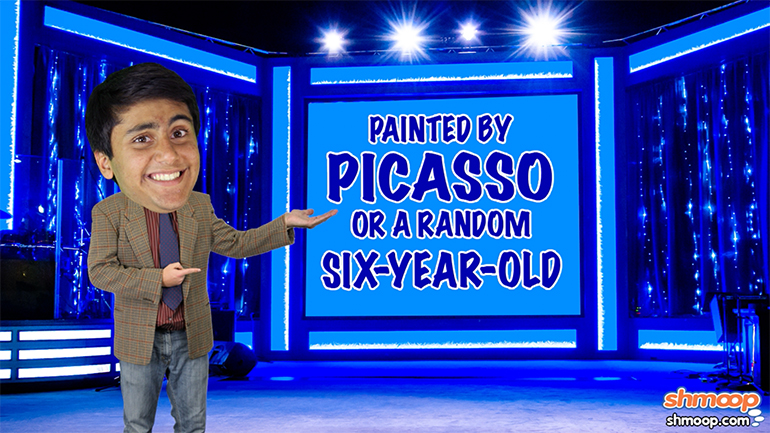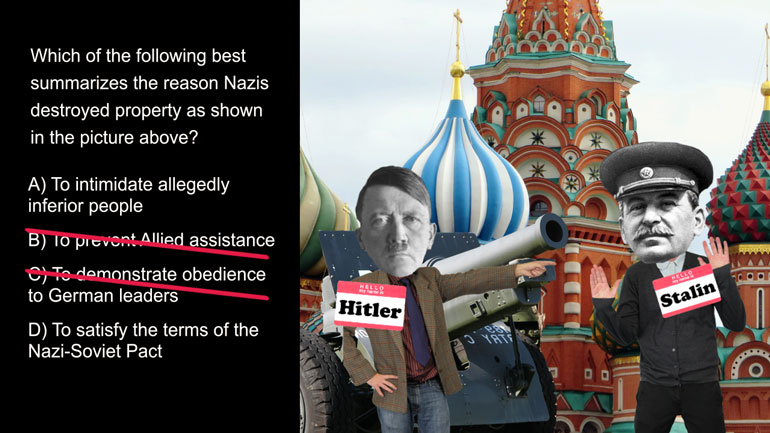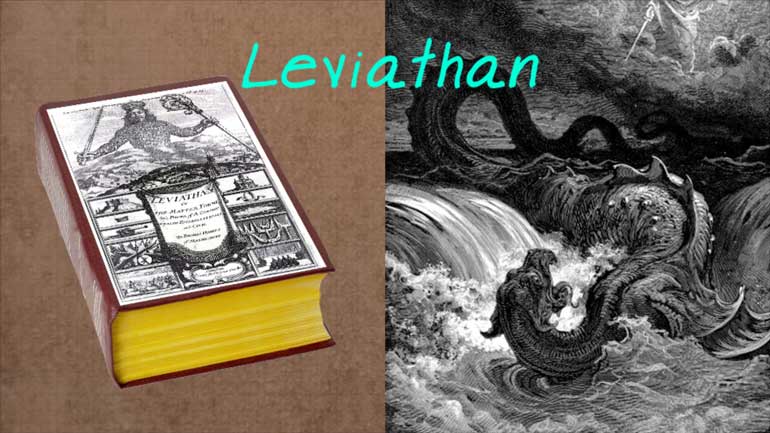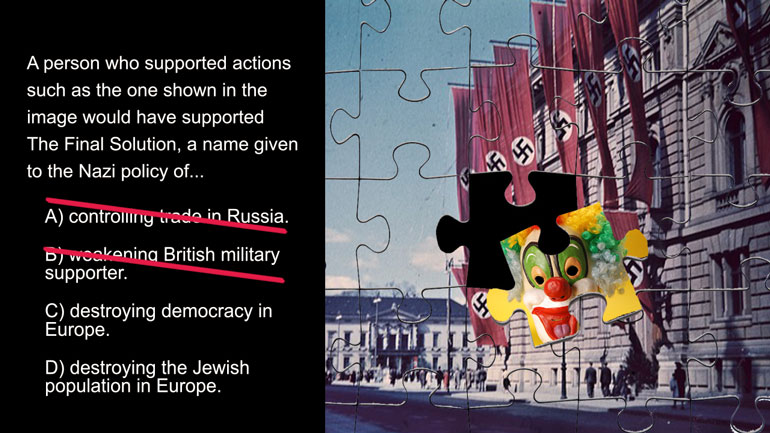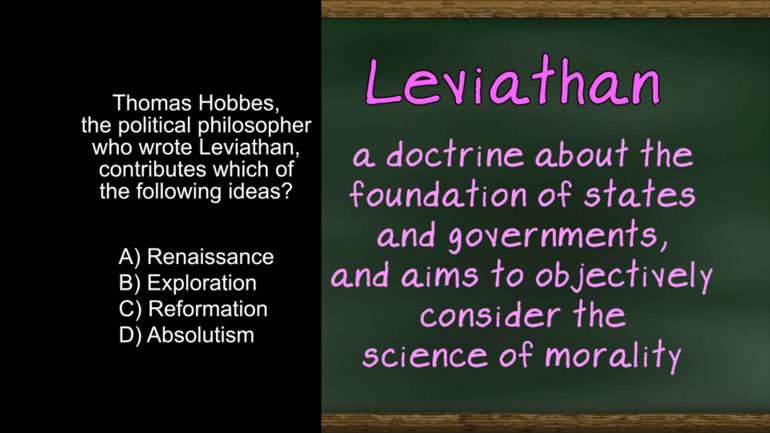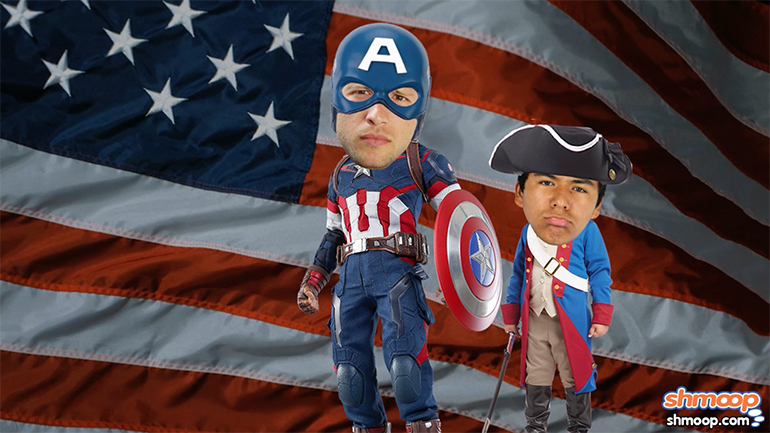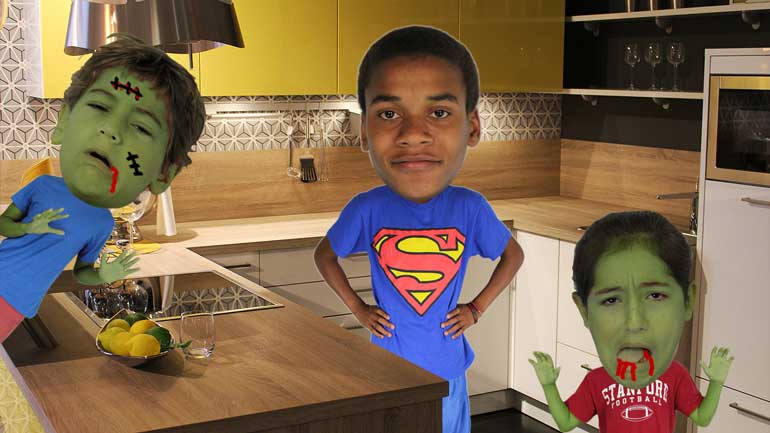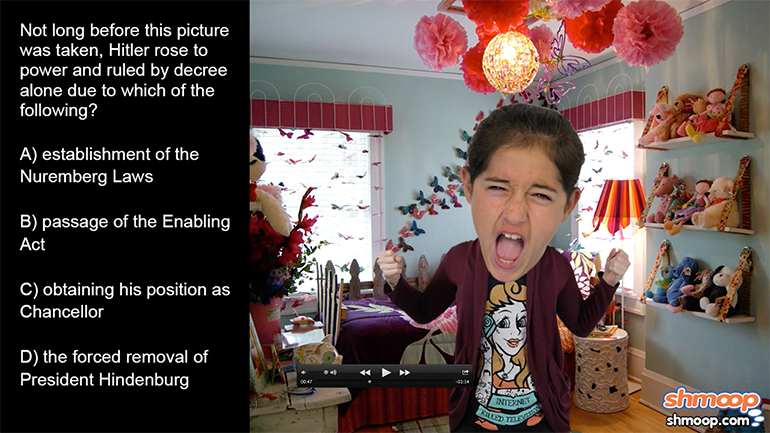ShmoopTube
Where Monty Python meets your 10th grade teacher.
Search Thousands of Shmoop Videos
AP European History Videos 26 videos
AP European History 1.5 Period 1: 1450-1648. Machiavelli's The Prince was similar to Thomas More's philosophy because it...what?
AP European History 2.3 Period 1: 1450-1648. Which of the following was the most immediate change in Europe after the signing of the Treaty of West...
AP European History 2.2 Period 1: 1450-1648. The man portrayed in the image was previously motivated to tack the Ninety-five Theses on the doo...
AP European History 1.5 Period 1: 1450-1648 28 Views
Share It!
Description:
AP European History 1.5 Period 1: 1450-1648. Machiavelli's The Prince was similar to Thomas More's philosophy because it...what?
Transcript
- 00:04
And here's your shmoop du jour brought to you by Thomas
- 00:06
More a noteworthy Renaissance humanist with a good head on his shoulders until [scissors cuts Thomas Mores' head]
- 00:12
he was beheaded for treason yeah.. well check out this passage [mumbling]
- 00:16
[mumbling]
- 00:22
[mumbling continues]
Full Transcript
- 00:25
alright you sing it Machiavelli, okay well here's a question from what we know
- 00:30
about Machiavelli's The Prince it was similar to Thomas More's philosophy
- 00:34
because it what and your potential answers...
- 00:39
well fun fact about Machiavelli's The Prince it's one of the [Machiavelli portrait beside Machiavelli]
- 00:44
most famous examples of a sort of writing from the period called mirrors
- 00:47
for princes which functioned is a sort of textbook that instructed kings and
- 00:51
rulers on how to rule and behave that basically means they were one of the [king wearing a crown sitting on a throne]
- 00:55
earliest forms of a you know self-help book apparently the original title
- 00:59
making your subjects fear you for dummies never made it to print. More and [making your subjects fear you for dummies book]
- 01:04
Machiavelli different in many ways one was from England the other from Italy [The Big Ben and the leaning tower of Pisa]
- 01:09
one was a Christian humanist the other a civic humanist but they did share one
- 01:14
aspect of their philosophy but what was it well to start it most certainly
- 01:18
wasn't A, as that idea belonged exclusively to Machiavelli. More
- 01:23
believed in the power of the collective society so unless collective is somehow [Lots of people gathered together]
- 01:27
a mistranslation of wets themselves at the mere sight of you and we're not
- 01:31
buying this one he doesn't work either neither of them supported Reformation. Though [Man walks away from a castle]
- 01:35
More was a bit more passionate about it remember the whole losing his head
- 01:40
thing we mentioned yeah that was a direct result of his opposition to the [More's head floating around a castle]
- 01:44
Protestant Reformation going on at the time maybe More had bought a few too
- 01:48
many indulgences and was just trying to protect his investment well either way
- 01:52
this one isn't it either and seeing as most of Machiavelli's work focused on [Machiavelli and More heads on a Michael Angelo painting]
- 01:56
Roman history while More's focused most predictably on the Bible we can safely
- 02:00
rule out C as well to really get an idea of what More was like try to
- 02:04
picture that one musician friend of yours you know the one that only talks [Man talking about music to a girl]
- 02:09
about music every time you hang out
- 02:11
like it's great that you just discovered that some obscure band only writes songs
- 02:15
in the pentatonic scale, but like can we just order dinner now anyway he was like [girl wanting to order dinner and man holding a guitar discussing music]
- 02:21
that but with the church however they both did highlight societal problems and
- 02:25
the need for a reform which is why D is the correct answer here granted they
- 02:29
both proposed two completely different solutions More with a call for the end
- 02:33
of private property and Machiavelli with a call for a skilled absolute ruler but
- 02:38
the general idea was the same but is that even really all that similar sure [Two girls deciding to eat pizza for dinner]
- 02:42
you and your buddy can both agree that it's past 7:00 and time to eat dinner
- 02:45
but if one of you wants pizza and the other wants sushi you might as well be on [two girls arguing over sushi or pizza for dinner]
- 02:49
two different planet and don't even think of suggesting pizza with anchovies
Related Videos
AP European History Period 1: 1450-1648 Drill 2, Problem 1. As a result of the meeting in the image, which of the following occurred?
AP European History Period 3: 1815-1914 Drill 2, Period 1, Les Demoiselles d'Avignon represented the beginning of which of the following art m...
AP European History Period 3: 1815-1914 Drill 2, Problem 4. Paintings like the one depicted above were a direct reflection of what?
AP European History 1.2 Period 4: 1914-Present Not long before this picture was taken, Hitler rose to power and ruled by decree alone due to which...
AP European History 1.4 Period 3: 1815-1914. As evidenced through the passage above, Karl Marx was a passionate leader and is considered the father...
